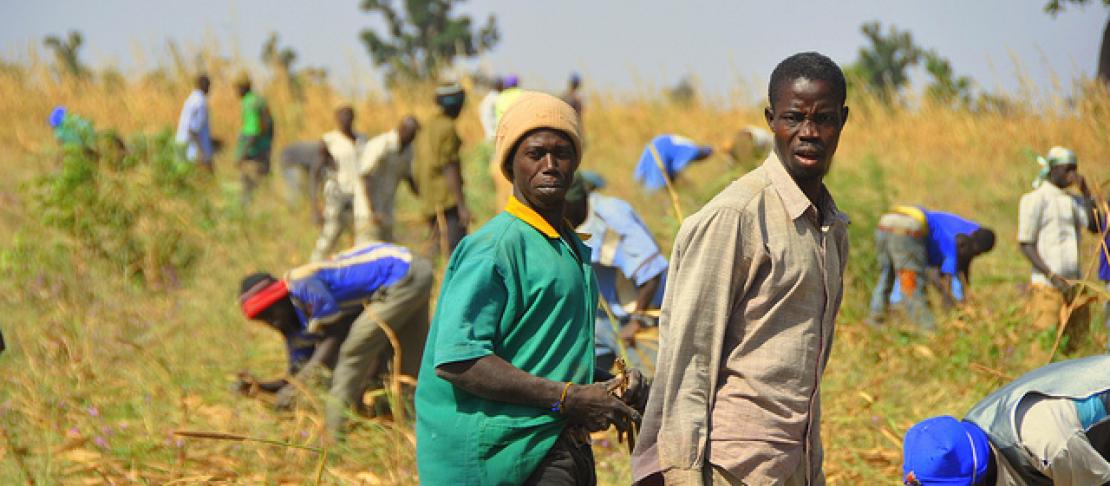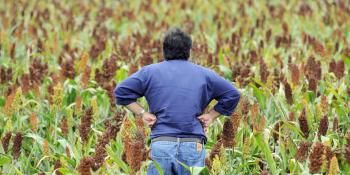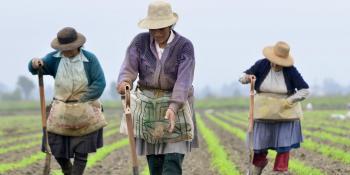A mix of stakeholders: joining forces for better adaptation in Mali

A workshop in Koutiala, Mali, helps develop narrative scenarios to describe key drivers of change and plausible socio-economic developments at the district level.
So-called Science-Policy dialogue platforms have been established in Ghana, Mali and Senegal. The platforms are regarded as a space to develop and strengthen interaction and collaboration between regional stakeholders. Participants come from district and government high-level national organizations, the private sector, non-governmental organizations, traditional and religious authorities, research institutes, universities and farmers' associations. Through the platforms of exchange, participants identify, share and discuss food and climate issues, gaps and their countries development priorities. The project aims to enhance interaction between national and local levels by providing parts for actors operating at these levels.
These dialogue platforms were founded in cooperation between the CGIAR Research Program on Climate Change, Agriculture and Food Security (CCAFS) and the International Crops Research Institute for the Semi-Arid Tropics (ICRISAT).
VIDEO : Scenarios development process with Koutiala partners
This video presents the rationale and outputs associated with a scenario envisioning workshop held in Koutiala District of Mali involving three Science-Policy District Platforms from the Bougouni, Koutiala and Segou districts. The workshop was organized to develop narrative scenarios which describe key drivers of change and plausible future climate and socio-economic developments at the district level, and to determine policies and actions which have to be taken today to enable a sustainable and more prosperous future for the districts.
The workshop is part of the CCAFS-Science-Policy Bridging Project led by ICRISAT. The project aims to bridge the science-policy gaps in the region by facilitating intensified interactions between stakeholders, including policymakers and policy advisors, scientists, private sector representatives and farmers’ associations as well as traditional and religious authorities. It has set up nine district-level stakeholder platforms in Ghana, Senegal and Mali. These multi-stakeholder engagements provide a joint space to share perspectives on food and climate change related topics, co-create knowledge and make joint decisions.
Sékou Touré is Communications Officer at the CCAFS West Africa regional program.



